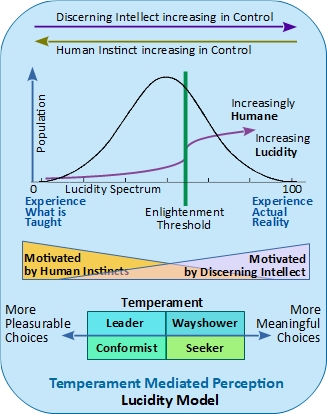Thanks for commenting Pattern-chaser. It is the fact that our mind works as I have described that I am trying to apply to some of the paranormal phenomena I study. I am trying to find useful ways to speak of the different conclusions people arrive at for the same input. Why does one person turn toward a Physicalist point of view while another person given the same information turns toward Dualism?
What are the underlying assumptions held by a person when he or she speaks of an abstract concept? My thought is that usually unexpressed assumptions determine their conclusions. I am trying to explain to my readers that this unconscious bias is manageable. It is what a seeker of spiritual maturity intends to manage.
This is a common question in sociology. I see this from Google Dictionary:
Woke: alert to injustice in society, especially racism.
"we need to stay angry, and stay woke"
Why is one person "woke" and another not? While I do not like the term, I see that it satisfies the need for a shared symbol with which people can easily make their point.
The "point of view" versus "perspective" question is my wordsmithing effort to make such a distinction without spending a hundred+ words defining the term. I have the sense not many people get the point ... thus, I must suspect that I do not have a valid point or I need better symbols.
I have defined the "Lucidity Spectrum" as an informal scale relating a person making decisions entirely under the influence of instincts, on one extreme, and a fully lucid person on the other.

This diagram represents a comparison of the estimated distribution of "woke-like" perception. There is a persistent 30-40% of the USA still supporting conspiracy theories so I think the bell curve needs to be biased more to the left. The diagram was prepaired to explain the influence of human instincts on decision making, but it represents a universal concept.
As an example, when I say that a researcher ignored information from Instrumental TransCommunication (ITC) in evaluating their results, I might follow by trying to make the point that, in failing to consider ITC, they are predestined to produce a misleading report. Assuming the researcher intends to be scientifically correct, it is reasonable to consider his or her predisposition toward Physicalism. That is typically an unconscious predisposition. What is the nature of that influence?
There may be good literature on this but I am an Engineer and not well versed in psychology. Second, I have given up looking for good literature because all that I have studied are predisposed toward physicalism. I was hoping for your insight.

















































